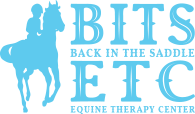Through encouragement and innovative programs involving horsemanship and equine therapy, we strive to enhance the health and well-being of individuals and their families.
Mission and History
Back In The Saddle - Equine Therapy Center (BITS-ETC) was founded in 2003 by Pauline Meridien. Six year later, BITS ETC was certified through the Professional Association of Therapeutic Horsemanship International (PATH™), a voluntary, peer-reviewed accreditation process confirming that BITS ETC demonstrates excellence in therapeutic riding, incorporates best practices and therapies, and maintains proper safety standards. That same year, BITS ETC also officially became the first facility in the US-Northeast to be licensed by SpiritHorse International™ to offer their unique intervention for autism.
Today, BITS ETC provides therapeutic riding and equine-assisted learning opportunities to children, youth, and adults with various physical, emotional and developmental challenges. We offer our services to people with autism, ADD/ADHD, muscular and skeletal diseases and disorders, learning disabilities, and those with vision or hearing impairments Through our riding sessions, we help our clients develop a “spirit that overcomes their disability.” We also offer cost-free services for veterans and uniformed professionals with our RideUP and StepUP programs. In early 2020, we extended the RideUP/StepUP programs to include all our brave medical professionals on the frontline of the pandemic.
In August of 2020, we welcomed Jaryn Hall-Haines as the new Executive Director of BITS ETC. Looking toward the future, BITS ETC will focus on building our capacity to meet the growing demand for equine therapy services. Knowing the effectiveness of this therapy, BITS ETC has begun to develop a long-term strategy for growth. In 2020, we provided services to over 54 students representing 22 different diagnoses. Our goal is to increase the number of students by 15% each year.

Jaryn Hall-Haines - Executive Director
Needs Statement
New Hampshire has a current census of just over 1.3 million people with approximately 122,000 living with a disability. For many of these residents, physical, occupational, and speech therapies are needed to ensure the highest quality of life. Complementary and alternative therapies, such as therapeutic riding and equine-assisted activities are often added to long-term treatment plans, adding benefits that are not easily obtained through traditional options.
Research shows that these alternative therapies are gaining more and more popularity; the National Institute of Health estimates that nearly 40% of Americans integrate alternative therapies into their health plans. For many children and adults struggling with physical and cognitive disabilities, therapeutic riding complements their traditional therapies in a unique way. Unlike traditional therapies, riding engages the complete body, and the relationship between a rider and horse can build confidence, trust, and motivation.
Equine therapies can often be costly and difficult to find. Horse ownership is expensive; the average horse requires approximately $10,000 per year in feed, stable costs, veterinary costs, and other expenses. Additionally, there are expenses for the arena, adaptive equipment, insurance, and administrative/overhead, making the cost of many therapeutic riding programs out of reach for many families in need. Of those living with disabilities, 29.7% live in poverty, compared with 11.7% of the general population (American Community Survey, 5-year estimates), making affordable and local therapeutic riding services all the more important.

